第16章
There was so much scorn in his words, and in the tone in which they were uttered, that Tregear in his turn was becoming angry. He had prepared himself to bow humbly before the great man, before the Duke, before the Croesus, before the late Prime Minister, before the man who was to be regarded as certainly the most exalted of the earth; but he had not prepared himself to be looked at as the Duke looked at him. 'The truth, my Lord Duke, is this,' he said, 'that your daughter loves me, and that we are engaged to each other,--as far as that engagement can be made without your sanction as her father.'
'It cannot have been made at all,' said the Duke.
'I can only hope,--we can both of us only hope that a little time may soften-'
'It is out of the question. There must be an end of this altogether. You must neither see her, nor hear from her, no in any way communicate with her. It is altogether impossible. I believe, sir, that you have no means?'
'Very little at present, Duke.'
'How did you think you were to live? But it is altogether unnecessary to speak of such a matter as that. There are so many reasons to make this impossible, that it would be useless to discuss one as being more important than the others. Has any other one of my family known of this?' This he added, wishing to ascertain whether Lord Silverbridge had disgraced himself by lending his hand to such a disposition of his sister.
'Oh, yes,' said Tregear.
'Who has known it?'
'The Duchess, sir. We had all her sympathy and approval.'
'I do not believe a word of it,' said the Duke, becoming extremely red in the face. He was forced to do now that which he had just declared that he had never done in his life,--driven by the desire of his heart to acquit the wife he had lost of the terrible imprudence, worse than imprudence, of which she was now accused.
'That is the second time, my Lord, that you have found it necessary to tell me that you have not believed direct assertions which I made to you. But, luckily for me, the two assertions are capable of the earliest and most direct proof. You will believe Lady Mary, and she will confirm me in the one and the other.'
The Duke was almost beside himself with emotion and grief. He did know,--though now at this moment he was most loath to own to himself that it was so,--that his dear wife had been the most imprudent of women. And he recognized in her encouragement of this most pernicious courtship,---if she had encouraged it,---a repetition of that romantic folly by which she had so nearly brought herself to shipwreck her own early life. If it had been so,---even whether it had been so or not,--he had been wrong to tell the man that he did not believe him. And the man had rebuked him with dignity. 'At any rate it is impossible,' he repeated.
'I cannot allow that it is impossible.'
'That is for me to judge, sir.'
'I trust that you will excuse me when I say that I also must hold myself to be in some degree a judge in the matter. If you were in my place, you would feel--'
'I could not possibly be in your place.'
'If your Grace were in my place you would feel that as long as you were assured by the young lady that your affection was valued by her you would not be deterred by the opposition of her father.
That you should yield to me, of course, I do not expect; that Lady Mary should be persistent in her present feelings when she knows your mind, perhaps I have no right to hope. But should she be so persistent as to make you feel that her happiness depends, as mine does, on our marriage, then I shall believe that you will yield at last.'
'Never!' said the Duke. 'Never! I shall never believe that my daughter's happiness can be assured by a step which I should regard as disgraceful to her.'
'Disgraceful is a violent word, my Lord.'
'It is the only word that will express my meaning.'
'And one which I must be bold enough to say you are not justified in using. Should she become my wife tomorrow, no one in England would think that she had disgraced herself. The Queen would receive her on her marriage. All your friends would hold their hands out to us,--presuming that we had your good-will.'
'But you would not have it.'